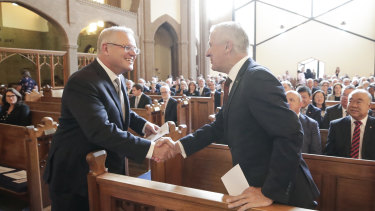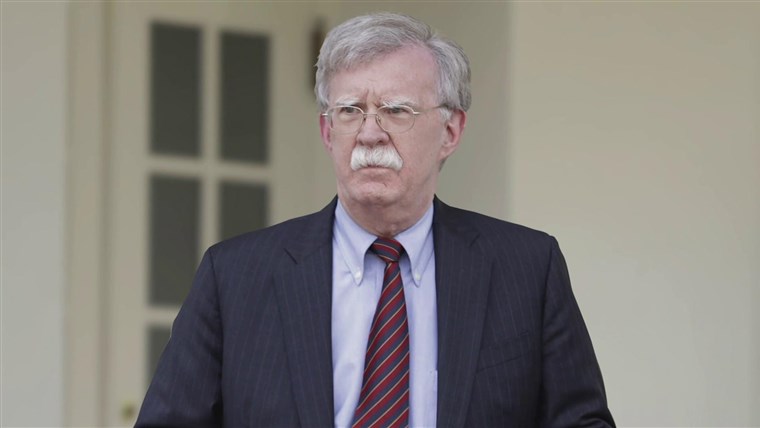- Analysis
- Politics
- Federal
- Political Leadership
Scott Morrison is one of the winners from a thwarted revolt on Tuesday morning that ended with the confirmation of Michael McCormack as Nationals leader, but nobody can rest easy after this turmoil.
The outcome is a vote for stability after the Prime Minister was briefly exposed to the prospect of Barnaby Joyce as the government’s deputy leader – a nightmare scenario given the friction of the past.
Loading
Replay
But an uprising does not have to topple a leader to have an effect.
The unhappy faction in the Nationals party room has sent a message to McCormack to muscle up against the Liberals. And it has sent a message to Morrison about the government’s wider direction.
This was a close outcome. While the Nationals did not release the tally, some claim there were 11 votes for McCormack and 10 for Joyce. Others say it was more like 14 votes for McCormack and 7 for Joyce.
While Joyce says the issue is now “finalised”, there is more than enough bad blood in the Nationals party room to lead to another poisonous challenge.
McCormack is a better leader than his internal critics claim. Few within the party room could do a better job. The elevation of David Littleproud to the deputy’s position also installs a stable and careful minister in a leadership role.

Prime Minister Scott Morrison and Deputy Prime Minister Michael McCormack at a church service to mark the start of the parliamentary year on Tuesday.Credit:Alex Ellinghausen
But they have not been installed to continue business as usual. The unhappiness with McCormack’s performance is real and the Nationals live in dread of rivals like Pauline Hanson’s One Nation and the Shooters, Fishers and Farmers Party.
Joyce and his closest ally, Matt Canavan, outlined a manifesto to confront the Liberals on policies including energy, water and the “green tape” they blame for hurting farmers.
That makes the vote for Joyce a backlash against government policy as well as a move against McCormack himself.
Loading
Morrison has emerged from the bushfire emergency with a statement on energy policy that accepts the science on climate change, promises action to reduce emissions, favours gas as a transition from coal and rules out a price on carbon as the broader policy solution.
Climate activists see this as woefully inadequate but it works for most Liberals, many Nationals and the core voters who could be labelled the Coalition’s base.
The Nationals revolt is a show of force from the more conservative members, not least Canavan as former resources minister, that they will not accept a gradual shift by Morrison to be more ambitious on climate.
For all the calls from the left for Morrison to go deeper with the emission cuts, this pressure within the Coalition party room carries much more force.
Loading
Voters are also unsure about policy measures like a price on carbon, as shown in a series of focus groups convened by research company Ipsos for The Sydney Morning Herald and The Age last week.
This unrest confirms the wider malaise in Canberra. If there is a bubble in this city, it is inflated by the hot air of the politicians themselves. It has been three decades since a leadership spill against an incumbent Nationals leader, when Charles Blunt challenged Ian Sinclair, but this turmoil is now standard.
Politicians who might have expressed sorrow at the instability of a governing party in the past now front the media as if it is just another day at the office. They have become desensitised to their own political violence.
Outside those who follow politics, however, many voters will remain oblivious to this distant tremor in federal politics.
The impact may only be seen over time, in the hardening of policies within the Nationals and their influence over the government as a whole.
David Crowe is chief political correspondent for The Sydney Morning Herald and The Age.
Loading


